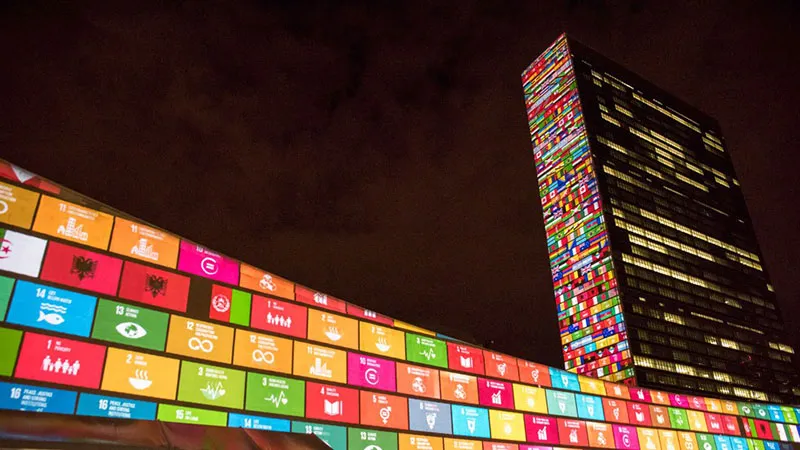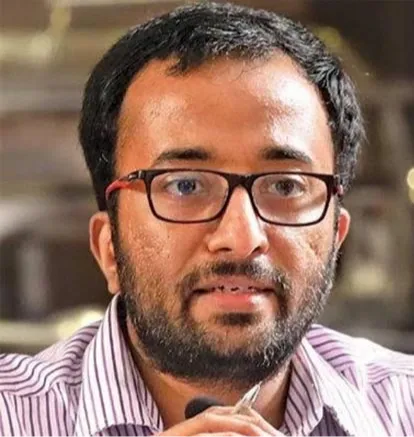
A year after the global adoption of Sustainable Development Goals (SDGs), refining and agreeing on a set of global indicators is still a work in progress. Experts observe that unavailability of data and lack of clarity or consensus on how the ambitious global targets can be measured will leave the process in a flux for a few years. Despite the tardy progress globally, however, many countries, including India, have taken up comprehensive initiatives reviewing the goals and incorporating them into national policy processes. In India, this process is spearheaded by the NITI Aayog and the Ministry of Statistics and Programme Implementation (MoSPI), with support from relevant ministries.
Using SDGs as the guiding framework, the NITI Aayog has already done a mapping exercise, across the goals, of Centrally Sponsored Schemes (CSS), related interventions, and nodal ministries. In parallel, the MoSPI has reached out to all nodal ministries in October, seeking suggestions for a set of indicators across goals and targets. A draft national indicator framework will soon be compiled by the MoSPI and it will be part of the 15-year vision document being prepared by the NITI Aayog, replacing India’s five-year plans. This will be followed by a consultative process, leading to finalisation of the framework.
Global processes: Moving ahead from the "practical starting point"
The UN Statistical Commission in its 47th session in March 2016 had agreed on the global indicator framework proposed by the Inter-Agency and Expert Group on Sustainable Development Goal Indicators (IAEG-SDGs) as a "practical starting point," noting that the indicators are "subject to further technical refinement." The UN Statistical Commission wanted IAEG-SDGs to report back at the 48th session (in March 2017) on progress made on the global indicator framework, including on specific methodologies, definitions and standards to be agreed at the international level.
The IAEG-SDGs was established by the UN Statistical Commission at its 46th session in 2015. The aim of this collaborative grouping is to develop an indicator framework for the monitoring of the goals and targets of the 2030 Agenda for sustainable development at the global level, and to support its implementation. The fourth meeting of the IAEG-SDGs, is currently being held in Geneva, Switzerland from 15 to 18 November 2016. The meeting was to be held originally at Addis Ababa in Ethiopia a month earlier, but was changed due to declaration of a state of emergency following violent protests against the government.
The objectives of the fourth meeting of the IAEG-SDGs are to:
- Finalise the initial tier system for SDG indicators across the 17 goals;
- Establish a process for the refinement of indicators over next few years;
- Review work plans for Tier III indicators which are the weakest;
- Discuss options for those indicators that do not have a proposed global custodian agency; and,
- Review data flows from the national level and discuss best practices.
Prior to the IAEG-SDGs meeting, an Open Consultation on possible refinements to specific elements of the Global Indicator Framework was held in September 2016, which was open to all countries, regional and international agencies, civil society, academia and the private sector. The fourth IAEG-SDGs will review the inputs received from various stakeholders and decide on the merit of each individual refinement. India represents the South Asian region in the negotiations at the IAEG-SDGs, and officials from the MoSPI participate regularly in the proceedings.
Beyond a "one size fits all" approach
While agreeing with the current global indicator framework as a practical starting point — a decision resulted from the opposition of countries like India to "adopt" the list of global indicators instead as proposed by the IAEG-SDGs — UN Statistical Commission had made it clear that the global indicators may not necessarily apply to all national contexts. The UN Statistical Commission also suggested that national reviews of SDG implementation will be voluntary and country-led, respectful of national policy space and priorities. When sources and methodologies other than national statistical offices are used, they will be reviewed and agreed by national statistics authorities.
There have been palpable tensions during the long-drawn SDG negotiations. India had maintained that it does not see development and climate change as competing objectives. While crafting specific deliverables, India called for 'universality' as a key principle that needs to be invoked, including specific commitments for developed countries. Particularly on issues such as climate change and sustainable consumption India has expressed that the developed countries will have to "take the lead in line with their historical responsibilities." In India's view, universality is complementary to differentiation and it should be the basis of crafting targets under the universal global goals. These debates have implications with regards indicators as well.
Discussing data and indicators for the 2030 Sustainable Development Agenda at the 47th Session of UN Statistical Commission, India had shared its concerns on many indicators. Firstly, India pointed out that some indicators seem to go beyond the remit of the target they seem to be measuring and appear to "editorialise" about the content. In some other cases, the indicators do not seem to be directly relevant to the targets they are measuring. India is also concerned that the focus of most of the indicators seems to be exclusively on national action, even those targets which involve a high degree of international cooperation. Finally, there are apprehensions that the reporting burden — which already appears heavier than that during the previous MDG era — might take away from implementation capacity, like in areas such as health and nutrition.
Many of these issues may get resolved during the current meeting of the IAEG-SDGs and the 48th session of the UN Statistical Commission. India's national indicator framework in all likelihood will have a considerably lower number of indicators than the global set of 230, given the systemic constraints and national priorities. Nevertheless, SDGs offer India an opportunity to strengthen national capacity and statistical systems, in terms of its ability to track development. It is important that the existing statistical infrastructure in India is streamlined and enhanced, so that the data collected is reliable and relevant, and the processes of planning and decision making remain evidence-based.
Way forward
The IAEG-SDGs, consisting of representatives from 28 countries' statistics offices including India, will come up with its recommendations this week, and the UN Statistical Commission's 48th Session in March 2017 will take it forward. Also, soon after the IAEG-SDGs meeting, the first World Forum on Sustainable Development Data (World Data Forum) will be held from 15 to 18 January 2017, in Cape Town, South Africa, enabling experts from around the world to explore innovative ways to apply data and statistics to measure global progress and inform evidence-based policy decisions.
Experts admit that it could take years to finalise the global SDG framework, and countries are encouraged to move forward quickly. In an article on the newly launched World Data Forum portal, Dr. Stefan Schweinfest, Director of UNStats noted that the statistical efforts needed at the country level to track SDGs as unprecedented in their scope. Monitoring progress, informing decision-making and holding governments accountable on the 2030 Agenda will require a data revolution at the country level, according to him. Three types of capacity will need to be expanded urgently: financial, human and institutional. This becomes impossible without the full political backing from the highest national authorities.
As part of the SDG follow-up and review mechanisms, member states are encouraged to conduct regular and inclusive reviews of progress at the national and sub-national levels. India has committed to present its voluntary national review at the high-level political forum (HLPF) in 2017. However, India is still not listed among the set of countries presenting national voluntary reviews on the HLPF website. India has already dedicated one day in each session of its Parliament for discussions only on SDGs, as announced at the UN General Assembly (UNGA) in September 2016 by Ms. Sushma Swaraj. It is anticipated that this will enable the legislature to constantly monitor SDGs progress, leading to better results.
It remains to be seen if there will be considerable improvements in India’s statistical capacity on account of the SDG implementation. However, the release of the draft national indicator framework by the end of the year will give strong signals as to the direction India’s statistical system will take in the immediate future.
Tier 1: Indicator conceptually clear, established methodology and standards available and data regularly produced by countries.
Tier 2: Indicator conceptually clear, established methodology and standards available but data are not regularly produced by countries.
Tier 3: Indicator for which there are no established methodology and standards or methodology/standards are being developed/tested
The views expressed above belong to the author(s). ORF research and analyses now available on Telegram! Click here to access our curated content — blogs, longforms and interviews.




 PREV
PREV


